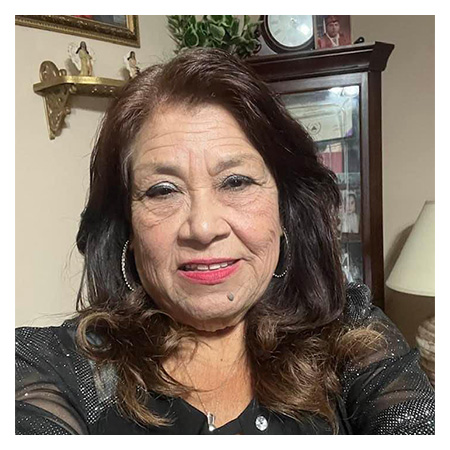Repair of a Right Sphenoid Cerebrospinal Fluid Leak
 In 2020, early in the COVID-19 pandemic, clear watery fluid started running from Julia Ayala’s right nostril during the day and down her throat at night. A resident of Weslaco, Texas, in the Rio Grande Valley, Ayala saw her primary care physician who thought the cause could be allergies and prescribed medication. But the drainage continued.
In 2020, early in the COVID-19 pandemic, clear watery fluid started running from Julia Ayala’s right nostril during the day and down her throat at night. A resident of Weslaco, Texas, in the Rio Grande Valley, Ayala saw her primary care physician who thought the cause could be allergies and prescribed medication. But the drainage continued.
“After many months, my family asked why I didn’t see an ENT doctor because they know more about the nose,” Ayala says.
An ENT in Weslaco referred her to another otolaryngologist in nearby Edinburg, who confirmed a cerebrospinal fluid (CSF) leak through detection of beta-2 transferrin, a protein present in CSF but not usually found in nasal secretions, blood, or other body fluids. He referred her to Houston rhinologist and skull base surgeon Martin J. Citardi, MD, professor and chair of the Department of Otorhinolaryngology-Head and Neck Surgery at McGovern Medical School at UTHealth Houston. Ayala and her daughter, Alma Ayala, made the five-and-a-half-hour drive to Houston in the spring of 2022.
CSF leaks have multiple causes. “The two most common are traumatic injury and elevated intracranial pressure,” says Dr. Citardi, who leads Texas Skull Base Physicians, which combines the expertise of otorhinolaryngologists and neurosurgeons at UTHealth Houston. “Mrs. Ayala underwent imaging that showed a meningocele.”
Endoscopic CSF leak repair is a delicate surgery. “The crucial element is identifying the location, which can be challenging,” he says. “Once we’ve found it, we seal it with multiple layers of graft material that act as a scaffold to set the body up so it can heal itself.”
Patients who undergo CSF leak repair generally spend two days in the hospital and during recovery, maintain a low activity level for six weeks to aid healing. Ayala and her daughter spent a week in Houston before returning to Weslaco. Postoperatively, she had no sign of leakage.
She has seen Dr. Citardi every six months in follow-up since her surgery. “Mrs. Ayala did well with the surgery and in recovery. With every CSF leak patient, our concern is that the repair might break down, or that elevated intracranial pressure might cause a leak in another location, so we see these patients for four to five years,” he says. “Many want to come longer to be confident that the repair is holding. Fortunately, success rates for endoscopic CSF leap repair are roughly 90 percent.”
“I really, really liked Dr. Citardi,” Ayala says. “He was calm and confident, which put us at ease.”